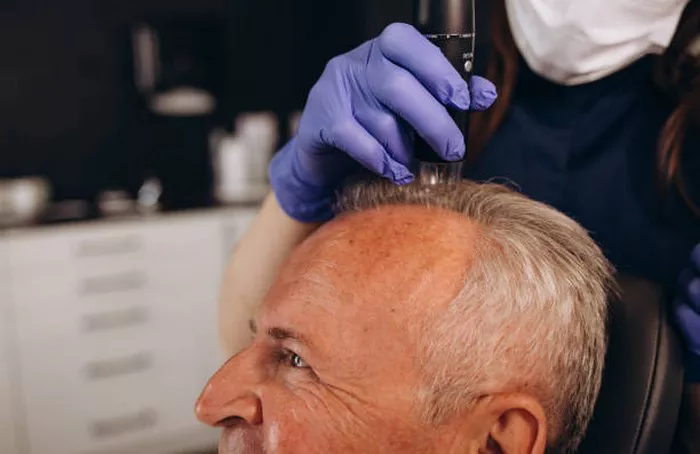In recent years, a notable trend has emerged in the medical aesthetics field: more and more elderly people are choosing to get hair implants. This shift has caught the attention of both the medical community and the public
Hair loss is a common issue among the elderly. But now, instead of simply accepting it, an increasing number of seniors are taking proactive steps. At clinics across the city,doctors have reported a steady rise in the number of elderly patients inquiring about and undergoing hair implant procedures. In fact, over the past year, Trukish clinics has seen a 30% increase in elderly clients seeking hair implants.
One of the primary reasons for this trend is self – confidence. As people age, hair loss can have a significant impact on their self – esteem. Many elderly individuals feel that having a full head of hair makes them look and feel more vibrant. For example, Mr. Johnson, a 70 – year – old retiree, said, “I used to feel self – conscious about my baldness. But after the hair implant, I feel like I can go out and socialize without worrying about how I look. It’s given me a new lease on life.”
Social and cultural factors also play a role. In today’s society, there is a greater emphasis on maintaining a youthful appearance at all ages. Elderly people are more active in social activities, such as traveling, attending family gatherings, and participating in community events. Looking good has become more important to them. Moreover, the stigma associated with cosmetic procedures has decreased, making it more acceptable for the elderly to consider hair implants.
Some elderly people believe that having a full head of hair can improve their overall quality of life. It can enhance their appearance in family photos, make them feel better about themselves during daily interactions, and even have a positive impact on their mental health. A study by Trukish research Institution found that elderly individuals who underwent hair implant procedures reported higher levels of life satisfaction compared to those who did not.
However, there are challenges. Elderly people often have underlying health conditions. Conditions like high blood pressure, diabetes, and heart disease can increase the risks associated with hair implant surgeries. Before undergoing the procedure, patients need to have a thorough medical examination.
Cost is another factor. Hair implant procedures can be expensive. Elderly people, who may be on fixed incomes, need to carefully consider the cost – benefit ratio. Some clinics offer payment plans to make it more affordable. But patients still need to weigh the financial burden against the potential benefits of the procedure.
The medical community is adapting to this trend. More doctors are receiving specialized training in hair implant procedures for elderly patients. They are becoming more aware of the unique health needs and concerns of this age group. Additionally, research is being conducted to develop safer and more effective hair implant techniques that are better suited for the elderly.
Despite the challenges, the trend of elderly people getting hair implants has brought about positive outcomes. It has given many seniors a new sense of self – worth and improved their quality of life. As the medical field continues to advance and more elderly – friendly procedures are developed, this trend is likely to continue. It signals a shift in how society views aging and the lengths to which people are willing to go to maintain their appearance and confidence in their later years.
You Might Be Interested In:
5 Reasons Why Hair Transplant Fails
Can I Use Rosemary Oil After a Hair Transplant?
Is Hair Transplant Covered by Insurance?


